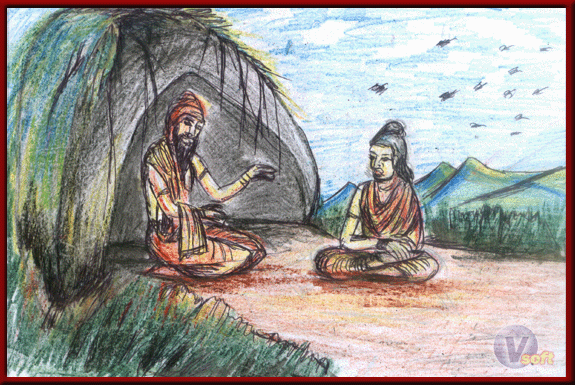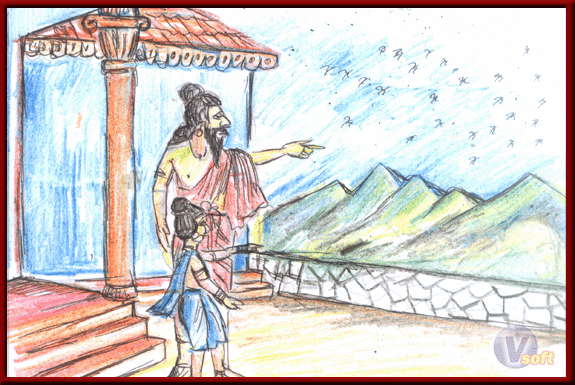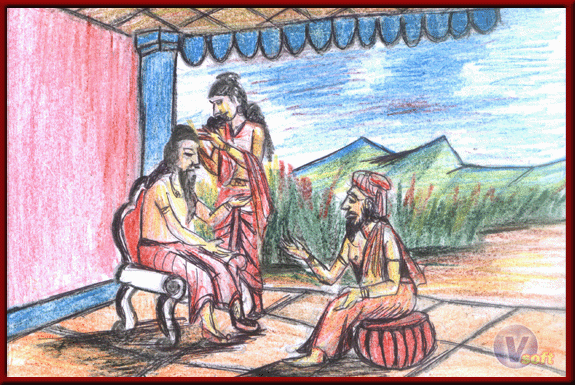138. The Bodhisatta And His Teachings On Deeds
Once upon a time when Brahmadatta was reigning in Benares, the Bodhisatta became a world-renowned teacher at Takkasila, and youths of the warrior and brahmin castes came from all over India, to be taught in the arts by him. The son of the king of Benares too, prince Brahmadatta, was taught the three Vedas by him. Now he was by nature harsh, cruel, and violent. The Bodhisatta, by his power of divination knowing his character, said, “My friend, you are harsh, cruel, and violent, and verily power that is attained by a man of violence is shortlived; when his power is gone from him, he is like a ship that is wrecked at sea. He never reaches haven.
137. The Bodhisatta And His Son’s Lust

Once upon a time when Brahmadatta was reigning in Benares. On this occasion, the Bodhisatta came with fruits to the hermitage in the evening. Opening the door, he asked his son, “Every other day you will bring wood and victuals, and lit a fire. Why have you not done any of these things to day, but sit sadly here pining away?”
The young man said, “Father! While you were away gathering fruits, there came a women who tried to lure me away. But I would not go with her till you say ‘yes’. I left her in garden; she is waiting for me. And now my wish is to depart.”
136. Paths Leading To Spiritual Welfare

Once on a time when Brahmadatta was reigning in Benares, the Bodhisatta was a very wealthy Treasurer; and he had a son who, when only seven years old, manifested great intelligence and anxiety for his spiritual welfare. One day the child came to his father to ask what were the Paths leading to spiritual welfare. And his father answered him:
Seek Health, the supreme good; be virtuous;
Hearken to elders; from the scriptures learn;
Conform to Truth; and burst Attachment’s bonds.
For chiefly these six Paths lead to Welfare.
135. The Bodhisatta And His Slave

Once upon a time when Brahmadatta was reigning in Benares, the Bodhisatta was a rich Treasurer, and they had a son. And the same day a female slave in his house gave birth to a boy, and the two children grew up together. And when the rich man’s son was being taught to write, the young slave used to go with his young master’s tablets and so learned at the same time to write himself. Next he learned two or three handicrafts, and grew up to be a fair spoken and handsome young man; and his name was Katahaka. Being employed as private secretary, he thought to himself, “I shall not stick on to this work. If a slightest fault happens, and I will be beaten, imprisoned, branded. On the border, there lives a merchant who is a friend of my master. I must go to him with a letter purporting to come from my master which identifies me as his son. I will marry the merchant’s daughter and live happily ever afterwards.”

